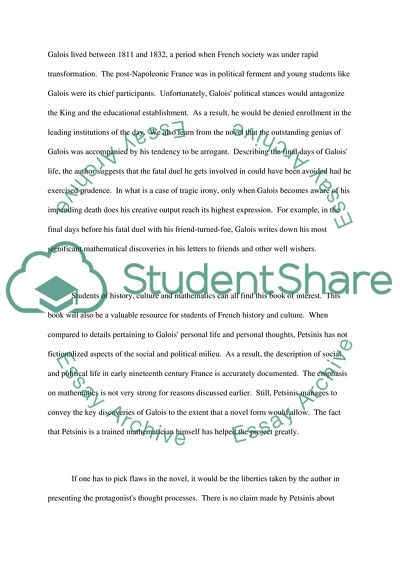Cite this document
(The French Mathematician by Tom Petsinis Book Report/Review, n.d.)
The French Mathematician by Tom Petsinis Book Report/Review. https://studentshare.org/literature/1742248-critical-review-of-the-book-the-french-mathematician-by-tom-petsinis-1997
The French Mathematician by Tom Petsinis Book Report/Review. https://studentshare.org/literature/1742248-critical-review-of-the-book-the-french-mathematician-by-tom-petsinis-1997
(The French Mathematician by Tom Petsinis Book Report/Review)
The French Mathematician by Tom Petsinis Book Report/Review. https://studentshare.org/literature/1742248-critical-review-of-the-book-the-french-mathematician-by-tom-petsinis-1997.
The French Mathematician by Tom Petsinis Book Report/Review. https://studentshare.org/literature/1742248-critical-review-of-the-book-the-french-mathematician-by-tom-petsinis-1997.
“The French Mathematician by Tom Petsinis Book Report/Review”. https://studentshare.org/literature/1742248-critical-review-of-the-book-the-french-mathematician-by-tom-petsinis-1997.


